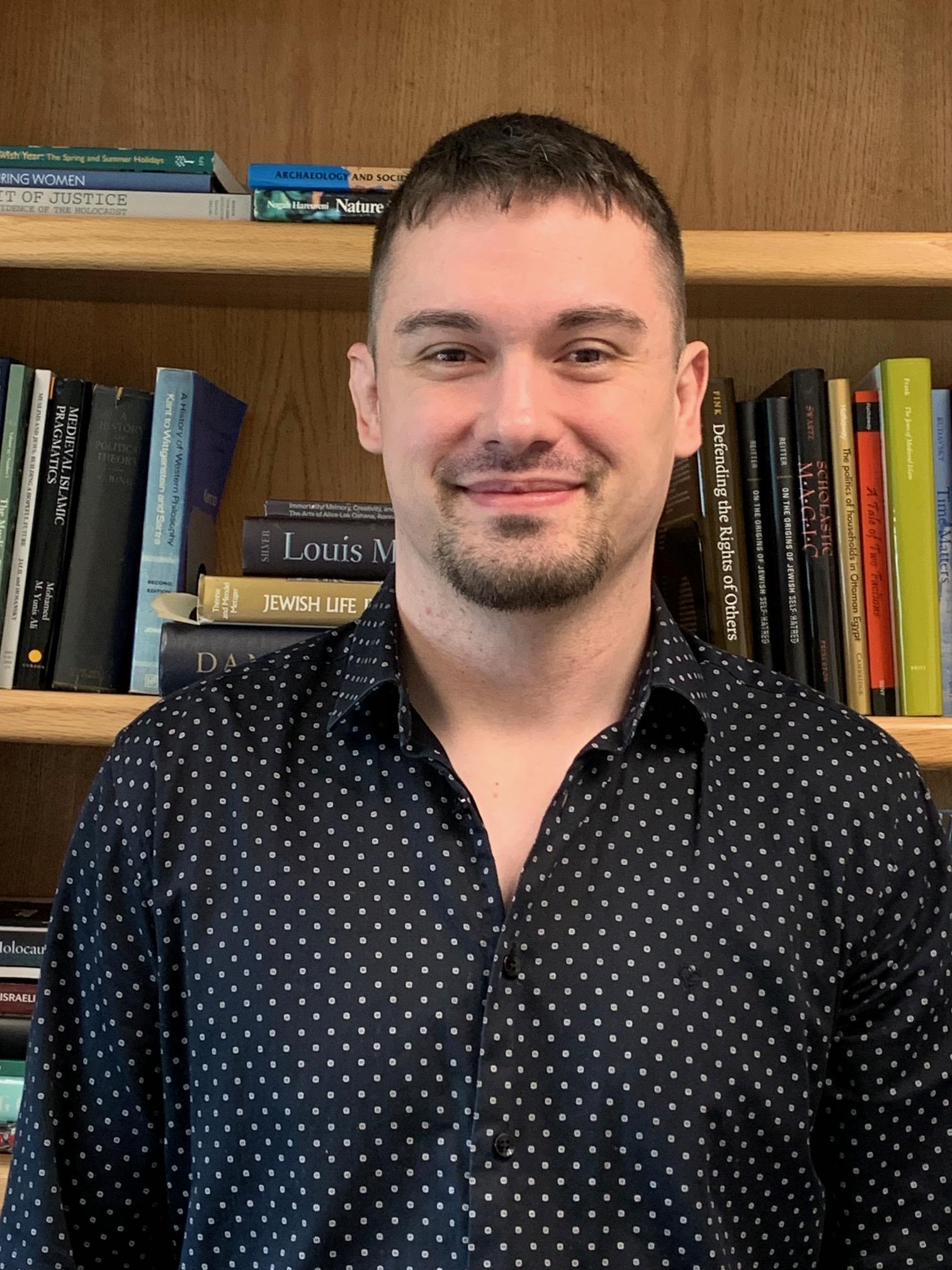The Melton Center for Jewish Studies has been fortunate to have received endowed funds from donors over the years, some of which are earmarked for undergraduate and graduate student scholarships.
The students below received awards for the 2022-2023 school year.

The Reva and Sanford Lipson Student Support Fund
The Reva and Sanford Lipson Student Support Fund was established for deserving students studying or researching the history and culture of the Jewish people.
Hannah Portner, who graduated in August with a major in criminology and minor in psychology is the recipient of this award.
The Leah Metchnick Godofsky and Martin R. Godofsky Scholarship
The university awards this scholarship annually to one deserving undergraduate student who is enrolled in courses of Jewish study at the university level.
Maya Goldenberg, who is is a fourth-year student with a major in history and minors in development studies and city and regional planning, is this year's recipient.
The Charlotte Susan Roth Memorial Fund Essay Contest
This fund is awarded to any currently enrolled graduate and undergraduate student who has written a paper on a topic related to Jewish studies from autumn semester to spring semester. Essay topics can include any aspect of Jewish studies (Bible, language, literature, history, philosophy, sociology, culture of Israel, rabbinics, arts, etc.).
Kristina Quigley received an award for her essay, “Genesis 22: Child Sacrifice.” Kristina graduated in May with a double major in Jewish studies and Hebrew and a minor in History of Human Development and Family Science.
Diane Cummins Hebrew Prize
The Cummins Prize in Hebrew is a scholarship in the Department of Near Eastern and South Asian Languages and Cultures (NESA) to benefit those studying Hebrew and/or Yiddish.
The Cummins prize was awarded to Wyatt Rider, who graduated in May with a triple major in Hebrew, Jewish studies and psychology.
The Samuel M. Melton Graduate Fellowship in Jewish Studies
The Melton graduate fellowship provides a full fellowship to a graduate student whose research centers on core areas of Jewish studies.
This year's Melton Graduate Fellowship recipient is Asad Zaman, who is a PhD candidate in the Department of Near Eastern and South Asian Languages and Cultures.
After graduating from Widener University Commonwealth Law School and becoming a licensed attorney, Asad worked in discovery services for close to a decade before returning to academia.
Prior to coming to Ohio State, he obtained an MA in Middle Eastern History from the University of Maryland, College Park.
Asad’s general research focusses on studying various religious traditions' late antique reception of ancient Near Eastern thought and culture for the particular purpose of better understanding the progressive proclamation of the Qur'an as Islam arose in its West-Arabian milieu.
Asad will use his time as a graduate fellow at the Melton Center to learn Ancient Greek and Ethiopic in order to read later translations of Second Temple Jewish literature like the Book of Enoch whose analysis will include a substantial part of his dissertation.
The George M. and Renée K. Levine Graduate Fellowship in Jewish Studies
The Levine graduate fellowship provides a full fellowship to a graduate student whose research centers on core areas of Jewish studies.
This year's Levine Graduate Fellowship recipient is Adam Abate.
Adam completed a BA in ancient languages with a focus on Classical Hebrew at Wheaton College and spent three and a half years in Amman, Jordan studying both Levantine and Classical Arabic prior to coming to study in the Department of Near Eastern and South Asian Languages and Cultures at Ohio State.
Adam's research involves methods in comparative semitics and historical Hebrew grammar where he seeks to understand the Hebrew Bible in its Northwest Semitic linguistic context.
This year he plans to write an MA thesis on the Hebrew word for the underworld, Sheol, wherein he will propose a new etymology according to its linguistic and ancient Near Eastern context.
Collectively, Adam hopes to relate the etymology, meaning and history of this word contextually to the ancient conceptualization of necromancy.
